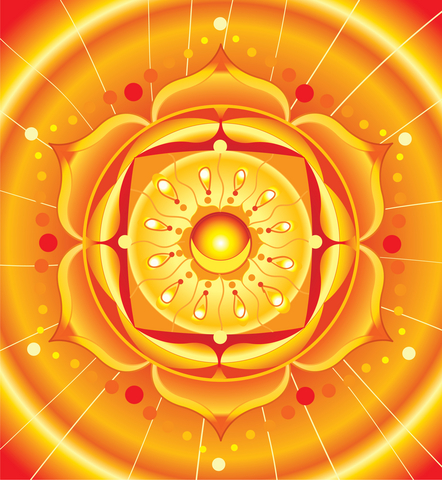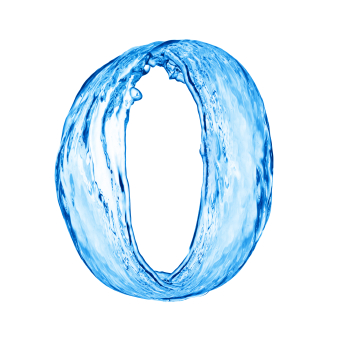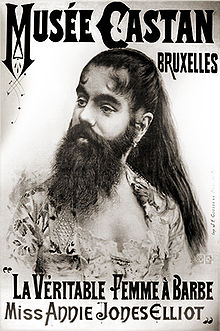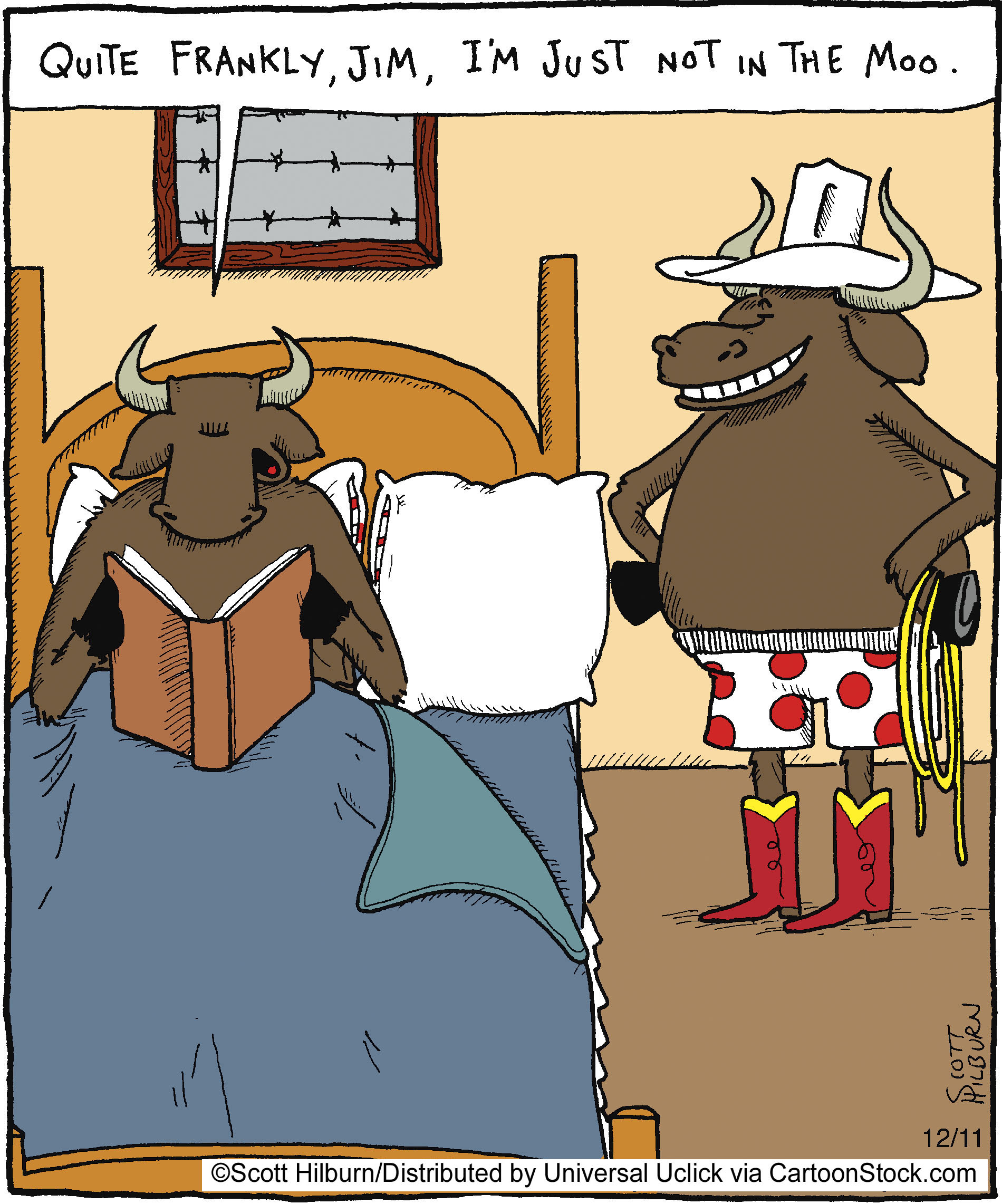Wednesday Bubble: Coregasm?
I ran across an article earlier in the week referencing a new study demonstrating a link between exercise and orgasm. And thought: “hold on.” Yet, a deeper dive into the topic demonstrates that it might very well be true, at least for some women. And while I admit that I am not a fan of the term “coregasm,” I could very easily become a fan of sexual arousal or pleasure during exercise; the premise intrigues me as I start to wonder if there is a way to combat aging issues of sexual desire/dysfunction through certain workouts.
Anyone for an “Exercise-O?” But I digress…
Researchers from the famous Kinsey Sex Institute at the University of Indiana in Bloomington write that “orgasms that occur outside of explicitly “sexual” contexts have received much less attention in sexuality research,” and are considered “anomalies, even pathological.” One such non-sexual behavior is apparently physical exercise, noting that “in recent years, popular magazines and Internet blogs have described exercise-induced orgasms, frequently identifying them as ‘coregasms’ due to the association between the type of exercise, i.e. those that work on the core, and orgasm.” However, they also say, gratefully, that this terminology might be incorrect due to a lack of evidence linking orgasm to core muscle activity.
So, why is this important anyhow (besides the obvious)?
Orgasm is incompletely understood and for women in particular, it’s often linked to a variety of factors, including sexual arousal, environment, life stressors, partner intimacy and caring and of course, lubrication. And, in my research I’ve discovered that for some women who experience exercise-related orgasm, they may start very early before they participate in sexual activity with a partner, necessitating counseling and assistance in transferring the ability from sports to a human, if you will. Moreover, as the researchers say, given the attempts to enhance sexual arousal, perhaps this research can start to shed some light.
Consequently, they surveyed 530 women between the ages of 18 and 56 who reported experiencing exercise-induced orgasm or exercise-induced sexual pleasure (i.e. coming close to orgasm during exercise) via email messages. The results, which were published last November in Sexual and Relationship Therapy are intriguing:
- 40% or more of women reported having had experienced exercise induced orgasm or sexual pleasure during exercise 11 or more times in their lifetime
- Almost 44% said that the first time it happened, it was during abdominal exercises, and over 50% reported having an orgasm during situps or crunches within the past three months. Other types of exercise that appeared to spur on recent orgasm included weight lifting (26.5%), yoga (20%), biking or spinning (15.9%), swimming or water aerobics (17.9%), running (13.2%) and walking or hiking (9.6%)
- Many of these same exercises were reported by women who experienced sexual pleasure, including biking/spinning, sit ups/crunches, lifting weights and yoga.
So, how do women feel about these experiences? Apparently, most say that while they are happy about these experiences, those who actually experience orgasm while exercising also express feeling embarassed or self conscious, fearing discovery by others if they vocalize their pleasure. Two women* I spoke to told me that if they are alone, they rarely do anything to stop it although they do control any overt visible displays. In public, they let it go on for as long as they can without losing ‘control’ and then deliberately redirect attention to the exercise. In fact, in the study, at least a third of women in the survey in either group reported that they could control their experience.
Women who orgasm during physical activity also say that it occurs without sexual fantasies, which suggests that perhaps there is a component of orgasm that is totally unrelated to sex. Yet, there are some women who associated sexual thoughts first, noting that they are very aware how many reps or time spent exercising will bring on an orgasm.This begs the chicken/egg question: does pleasure while exercise beget adjustment of thinking beget orgasm? Moreover, some women reported being motivated to exercise to reach orgasm or experience sexual pleasure, which takes away the spontaneous aspect of any hypothesis.
Regardless, the two women I spoke with in my side research shared some advice for those of who are fortunate enough to have experienced this. If you’re new to the exercise-O, game, Natalie offers this: “it takes a bit of self-control so in the beginning, you have to figure out what’s happening (“is this what I think it is?!”), acknowledge it and then purposefully redirect your attention to your surroundings.” For the more experienced, Ashley said that women should enjoy it. “You are lucky. Once you recognize what’s happening, enjoy it until you reach that point where you NEED to vocalize or publicly display your experience.” At that point, she adds, “I highly advise a quick “oh, I’ll save it for later…” and similar to Natalie’s advice, she says to redirect your thoughts.
Ironically, both women caution that if you are exercise-O prone, to stay away from moving objects, such as biking on the street or skiing, noting that the obvious: the moment it might take to calm your parts can mean an serious accident!
The researchers caution that more study is needed, especially since women were recruited online and that there was no quality measurement tool with which to gauge questions and answers. They also say that future research might want to focus on men’s experiences with exercise induced orgasm and sexual pleasure. Moreover, the triggers of either are still unknown. Still, the fact that I was able to quickly find two women who have experienced this phenomenon tells me that there are likely a lot more out there.
I’m intrigued. This could open up an entire new world. And I would love to see more of these types of studies done in women 50 and older. Until then? I prefer the term exercise-O over coregasm. But that’s just me. And this bubble ain’t burst. How refreshing!
*Names changed to protect identities.
Read More
Sexual desire, age and a whole lotta debunking…
 I can’t tell you the number of times I’ve stumbled across studies or articles about sexual desire. She does, she doesn’t, he does, it doesn’t, take this pill, patch, supplement, eat this food, wear this article of clothing, blah blah blah. Guess what? A lot of it is in your head (or your environment). No really! At least if you are a woman. Granted, waning hormones, namely estrogen, will likely affect vaginal dryness, pliancy and libido, at least to a certain extent. But there is a whole body of literature that points to the importance of the value of, and satisfaction with, partner relationships.
I can’t tell you the number of times I’ve stumbled across studies or articles about sexual desire. She does, she doesn’t, he does, it doesn’t, take this pill, patch, supplement, eat this food, wear this article of clothing, blah blah blah. Guess what? A lot of it is in your head (or your environment). No really! At least if you are a woman. Granted, waning hormones, namely estrogen, will likely affect vaginal dryness, pliancy and libido, at least to a certain extent. But there is a whole body of literature that points to the importance of the value of, and satisfaction with, partner relationships.
I’ve been writing about sexual desire and sexual dysfunction since I started this blog four years ago. And I continue to be frustrated by the number of solutions and panaceas that overlook integral factors like emotions and intimacy. Consequently, I was truly happy to run across another piece of evidence demonstrating the importance of these factors. This time, researchers looked at a cohort of over 800 women who were as young as 40 and as old as 100 and asked them a number of questions about their emotional health, sexual activity and menopausal status. The results? 90% reported that they were in good health, and about half had had sexual activity within a month of being surveyed, with or without a partner. Notably, a large percentage of these women were using hormones.
However, while a third of women reported that they never or almost never felt sexual desire and a third reported having low sexual desire, most of the women who were sexually active indicated that emotional closeness with their partners was key and in fact, was associated with more frequent arousal, lubrication and orgasm. And, guess what? Although aging has often been thought to be a harbinger of low sexual satisfaction (or activity, for that matter), the percentage of women who reported being sexually satisfied actually increased with age, with about half of women older than 80 reporting that they were always or almost always satisfied! Moreover, these older women also had the same degree of orgasm satisfaction as their younger peers!
One of the study’s most important findings was the fact that sexual activity was not always the litmus for sexual satisfaction, and that emotional and physical closeness were almost equally if not more important. Indeed, lead researcher Dr. Susan Trompeter notes that women in the study “who were not sexually active may have achieved sexual satisfaction through touching, caressing or other intimacies developed over the course of a long relationship” adding that “emotional and physical closeness to the partner may be more important than experiencing orgasm.”
Clearly, this research highlights the need to focus on sexual satisfaction rather than sexual dysfunction or limitations to what is commonly perceived as sexual activity. By ignoring intimacy and partner relationships, we do a huge disservice to women. Moreover, it is certainly refreshing to know that it often gets better, not worse over time.
Read More
Wednesday Bubble: is DHEA the path towards a better sex life?
Today’s Bubble is a doozie that can one of two ways: in the yes(!) column or in the no (!) column. I’ll leave it to you to decide.
DHEA is the most abundant sex hormone in circulation and is mostly secreted by the adrenal glands. Research has shown that low DHEA levels in pre- and postmenopausal women may negatively affect sexual functioning, while ample blood levels may enhance sexual functioning, cognitive functioning and wellbeing. Yet, whether or not DHEA really works continues to be controversial. And the reason behind the burgeoning interest is the quest to find a suitable replacement for HRT. The thing is? There are lots of suitable, evidence-based replacements that are not broadly accepted by many medical professionals and many of these are discussed regularly on this blog. Nevertheless, here’s what researchers have just discovered about DHEA.
The researchers, from Pisa, Italy, followed 48 healthy, postmenopausal women for a year. During this time, they divided 36 women who were experiencing troublesome menopausal symptoms and requesting hormone replacement into three groups:
- 12 women who received 10 mg daily of DHEA
- 12 women who were given combined HRT
- 12 women who received the synthetic hormone, tibolone, daily
The fourth group was comprised of 12 women who did not wish to use HRT. They received daily vitamin D (400 IU) and calcium to help combat osteoporosis.
At the start of the study, all of the women reported similar sexual activity. However, after a year of treatment, women taking DHEA had significant increases in sexual interest and activity scoring almost 14 points higher on a questionnaire used to measure sexual interest, satisfaction, vaginal lubrication, orgasm and sexual partner. The women taking HRT experienced similar benefits, and women in both of these groups reported engaging in more sexual intercourse compared to women taking Vitamin D and calcium. Women taking the synthetic hormone also had increased sexual interest scores but they were not as high as the other two hormone groups. The magnitude of improvements in menopausal symptoms was also similar between the DHEA, HRT and tibolone groups.
The reason for this improvement appears to be the effect that DHEA has in terms of improving blood levels of the hormones estradiol and progesterone, both of which decline during menopause. It also appears to positively affect adrenal functioning.
What to think? Well, the study didn’t include any information on side effects. This is what Mayo Clinic has to say in that regard:
“No studies on the long-term effects of DHEA have been conducted. DHEA can cause higher than normal levels of androgens and estrogens in the body, and theoretically may increase the risk of prostate, breast, ovarian, and other hormone-sensitive cancers. Therefore, it is not recommended for regular use without supervision by a licensed health professional.”
Another important fact, acknowledged by the researchers, is that DHEA was only studied in 12 women, hardly enough to draw any firm conclusions. But they do believe that the findings, albeit preliminary, are encouraging, especially for women who “may have problems in taking more conventional HRT.”
Personally, I believe that it’s waaaaay too early to even consider DHEA as an alternative to HRT and in particular, to androgen therapy for sexual health. I want to see more information on side effects before it’s even on the radar. Meanwhile, I would love to hear what you think:
Yes!?
or,
No!?
Read MoreGuest Post Roundup: Sex, Generations and A Whole Lotta Love
As we come closer to the year’s end, I’d like to express my gratitude to a few of my colleagues who took the time to publish their thoughts on Flashfree this year. And, althoughI receive a lot of solicitations, there are few that I feel are worthy of your time or your close read. These, on the other hand, rocked my world, not only because of their breadth and finesse but also because of the love behind the words and thoughts.
This is a Roundup that you don’t want to miss.
[Credit: Special and enduring thanks to artist Darryl Willison of whimsicalwest.com. Please visit his site and support his work!]
- Should fatties get a room? Dr. Brian Hughes has lent his fine prose to this blog several times and often writes insightfully about how our society takes advantage of women. When I stumble across something on his blog that screams Flashfree, I reach out and say pretty please. Brian rocks!
- Should I or shouldn’t I? Oncologist, journalist and educator Dr. Elaine Shattner has spent most of her online bandwidth on discerning the facts about breast and other cancers. Let’s face it; there is a lot of information swirling around the Interwebz and when it comes to figuring out what it means, well, the challenge can be daunting. Want to know more? Elaine’s your girl for the 4-11.
- Anti Anti-Aging, Pro Great Glow. Do you want to fight your years? Or fight FOR them? Writer and author D.A. Wolfe dishes up some provocative prose and challenges the inner you. This one’s got “win” written all over it.
- Counterterrorism, women and 9-11. Doesn’t sound like a topic for Flashfree, does it? But my friend Anne Weiskopf shares a poignant piece about what it means to be a woman. And a mother.
- Want to get your groove on? Move. Alexandra Williams, motivational speaker, fitness writer, radio host and inspirateur nails it with a wonderful post on sex, exercise and wellbeing.
- Vagina’s are like self-cleaning ovens. Wait! What?! Yes, gynecologist and sex expert Dr. Jen Gunter makes a guest appearance to shake up the idea that douching is a good idea.
- Have you crossed the Big M finish line? Author Sarah Bowen thought she had. And tells us how she hit the reset button before the race ended.
- On Becoming Bendy. Author Patti Digh is at it again. She’s changing our world, one day at a time. And wow, has she ever changed hers’ this year. Want to be a better you? Bendy. Who said that Gumby didn’t have an alterior motive?
- Are you becoming your mother? When was the last time you looked in the mirror and asked yourself the very question that my friend, motivational speaker and author Cherry Woodburn asks in this post? Are you a generational profiler?
Hairy kiri…sexual desire and hairs on your chinny chin chin
Yes, I am taking poetic license with the Japanese term “Hara-Kiri” which literally means to cut or slice the stomach. This phrase has been hijacked by slangers who refer to it as ‘hari kari,’ to off oneself or commit suicide.
I propose that using testosterone in hopes of improving sexual desire is a great way to cut off one’s wellbeing and sense of self Chi, leaving hairs on the chinny chin chin and other undesirable locations.
Hairy kiri? You bet!
Back in 2008, I wrote about Intrinsa, a testosterone patch that was tested in a study of 841 postmenopausal not currently on hormone replacement therapy to test its effects on sexual desire after about a half a year’s use. The results, which were published in the New England Journal of Medicine, showed that compared to a dummy patch, using low or high dose Intrinsa was associated with significant increases in sexual desire and a decline in sexual distress. Overall, the higher dose patch led to modest improvements in sexual function. In other words, wearing a patch was significantly better than using nothing at all but not life-shattering in terms of improving sexual function. However, the caveat was unwanted hair growth, which occurred in about a third of women using the higher dose patch and in about 23% of women using the lower dose.
Once I delved further into androgens and women, I learned that while it has been suggested that local circulating levels of androgens are associated with low sexual desire and sexual dysfunction, the data are contradictory. Moreover, in a fairly recent scientific review, researchers say that no single androgen predicts which women will have sexual dysfunction, making it even harder to address, right? What’s more, they also note that laboratory studies have only limited value and aren’t routinely recommended.
Looking more closely at different formulations of androgens like testosterone, e.g. patches, oral tablets, implants and injections, experts have found that the major side effects are unwanted hair growth and acne. Both are related to dose and how long treatment lasts, and disappear once treatment is stopped. And while rates of hair growth are definitely lower for patches in general (as few as 7% to as high as 23%), as many as 36% of women who use oral testosterone have unwanted hair growth. Among those receiving implants, pellets or injections the number is also high: 20%.
Let’s face it; the trouble is testosterone is that it may only address a miniscule amount of factors affecting a woman’s libido and in literally leave a trail in its place. Don’t know about you but I think it’s a hairy kiri proposition. A few more notches on the desire scale and a few more hairs in your chin, on your chest and lord knows where else.
Committing hairy kiri ain’t for sissies; that’s for sure!
Read More
Wednesday Bubble: Are you in the moo? Sex and a sense of purpose
What are we bursting this week? How about midlife and sexual desire. Frankly, I’ve got sex on the brain, sex in midlife, that is. And what we need to do to insure that it continues to be enjoyable, that we desire it and that we please our partners as much as we hope that they please us. Consequently, I am reposting this piece from earlier in the year, with the hope that with a sense of purpose, you’ll become more in the moo. Or mood. Whatever the case may be.
Sexual desire. In midlife, sexual function and sexual desire aren’t well understood, primarily because there are so many factors that enter into equation. This may be why certain silver bullets, like a female viagra, has failed to show any significant improvements in the desire department. And yet, researchers continue to accrue more information about the things that influence desire in women, ranging from the quality of intimate relationships to social support and overall wellbeing. The manufacturer who discovers a pill that addresses all of these will have struck gold. Meanwhile, back in reality, as many as 75% of women in midlife rate sexual health as important enough to warrant further exploration.
Fortunately, we may have another piece of the puzzle: ‘sense of purpose,’ which appears to be associated with greater wellbeing, happiness, life satisfaction, self-esteem, personal growth and optimism. A sense of purpose also appears to improve health, prevent certain diseases and may even improve cognitive function, thereby staving off mental diseases associated with aging. In a study that appears in the online version of Menopause, 459 menopausal women who were sexually active with a partner were followed over three years. Each year, they were asked about their emotional wellbeing (including their general mood, anxiety and depression as well as how often they engaged in and enjoyed sexual activity (specifically desire, type of activity and hugging and kissing). In the final year, they took a test that rated their sense of purpose on a five point scale ranging from ‘there is not enough purpose in my life’ to ‘the things I do are all worthwhile.’
The findings?
A greater sense of purpose equaled a great enjoyment of sexual activities, independent and regardless of other specific life circumstances. In other words, psychosocial functioning, e.g. social support, quality intimacy and overall wellbeing influenced the quality of these women’s sexual lives. On the other hand, menopausal status and use of hormone therapy did not appear to play a significant role in how often women engaged in sex or if they enjoyed it. This is important, as it means that psychosocial wellbeing may ultimately be more important than hormones.
In so far as the desire to engage? Women who were younger, had more social support, felt better about themselves and weren’t suffering from vaginal dryness tended to want sex more than their older peers who didn’t enjoy these factors.
Not surprisingly, many of the factors that researchers stress may help desire and engagement are associated with greater nitric oxide levels, which Dr. Christina Northrup says can help combat sexual dysfunction and improve pleasure.
When it comes to sex in midlife? It may help to think ‘sense of purpose,’ a real sense of purpose, now. (Poetic license, Chrissie!) I’m all for it if improves activity and desire without drugs.
Read More










